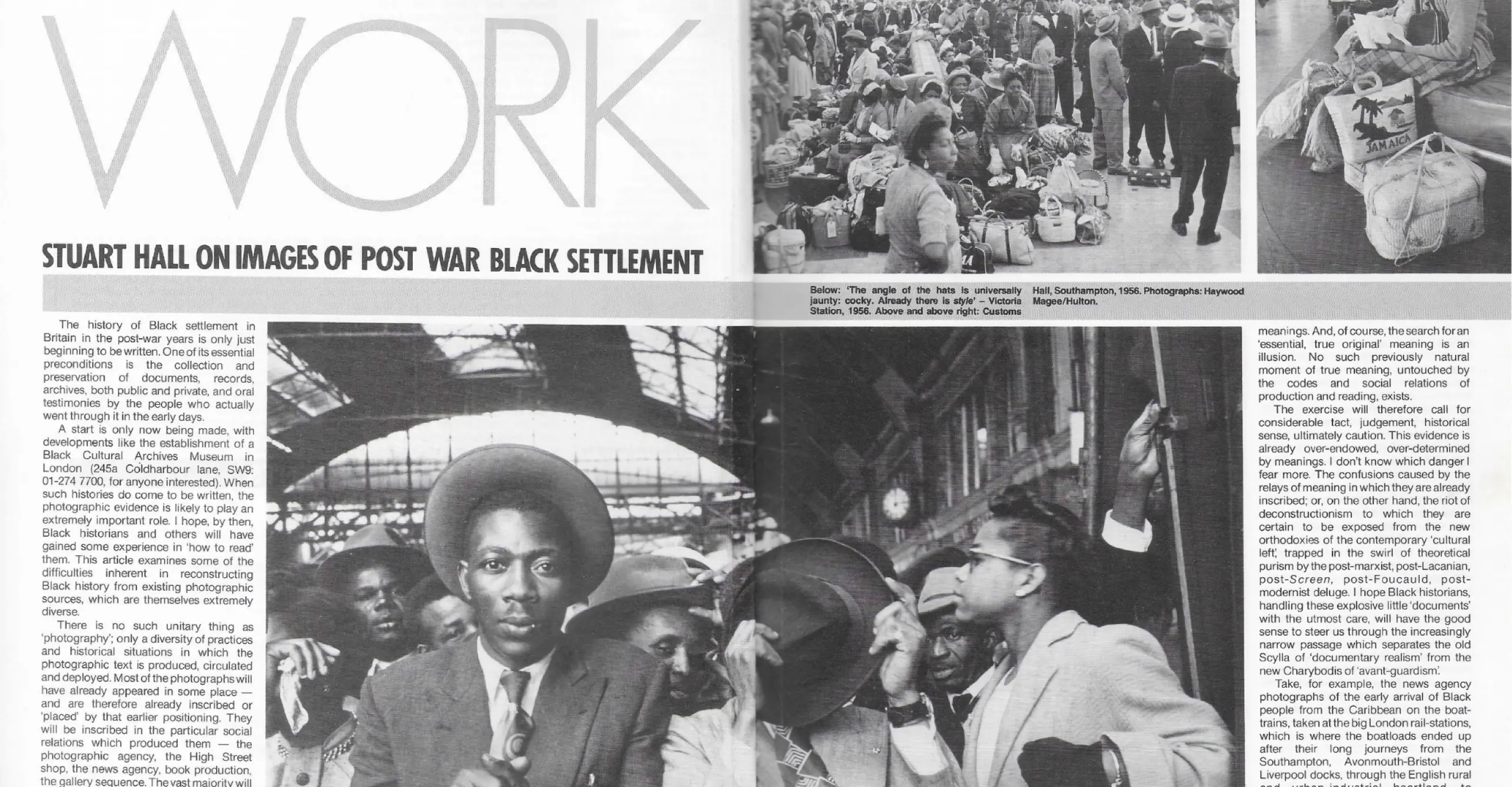Each period [in history] lays its own meaning on the image. Each photograph already has a context which it signifies. [...] But it does require a sort of delicate excavation, an archaeology, tracing the contradictory impression which previous discourses have left in the iconography of popular memory.
- Reconstruction Work: Stuart Hall on Images of Post War Black Settlement (1984)
How do we critically engage with historical images today? What can they tell us about our shared present, about the political and cultural shifts that have occurred since?
Professor Stuart Hall provided us with many tools to confront the present – tools which necessitate grounding ourselves in the complex histories that continue to shape each specific moment in time. In this reading group, we will discuss 'Modernity and Its Others: Three "Moments" in the Post-War History of the Black Diaspora Arts (2006) and 'Reconstruction Work: Stuart Hall on Images of Post War Black Settlement' (1984).
The latter was published in the ‘Black Image’ issue of Ten.8, the history of which is addressed in the current exhibition Ten.8 in Focus: The legacies of Black Image and Body Politics.
This session will be led by curator and writer Orsod Malik.
Produced in collaboration with International Curators Forum
Modernity and Its Others: Three ‘Moments’ in the Post-War History of the Black Diaspora Arts (2006)
Modernity and Its Others considers how to write the histories of non-Western societies in relation to modernity. The three ‘moments’ that Hall explores in this essay are the ‘last colonials’ who are born in 1920s-30s (a generation which Hall is a part of), the first generation of British-born diasporic artists from 1950s-70s, and a third undisclosed ‘moment’, which we will consider together.
Reconstruction Work: Stuart Hall on Images of Post War Black Settlement (1984)
Written 22 years prior to Modernity and Its Others, in Reconstruction Work Hall looks at a moment of historical rupture - the beginning of mass migration from the colonies to the metropole, London. He recognises the role of photography in the documentation of these journeys and the societal shifts that accompanied them. His provocations and warnings about such “explosive little ‘documents’” will help us consider how we might engage with such records through our work today.
About
The Shifting the Centre reading groups aim to open up a space for collective study to consider the ways in which critical texts can act as important analytical tools for addressing the urgent political realities we are currently navigating.
By booking for this event you agree to our Terms & Conditions.




